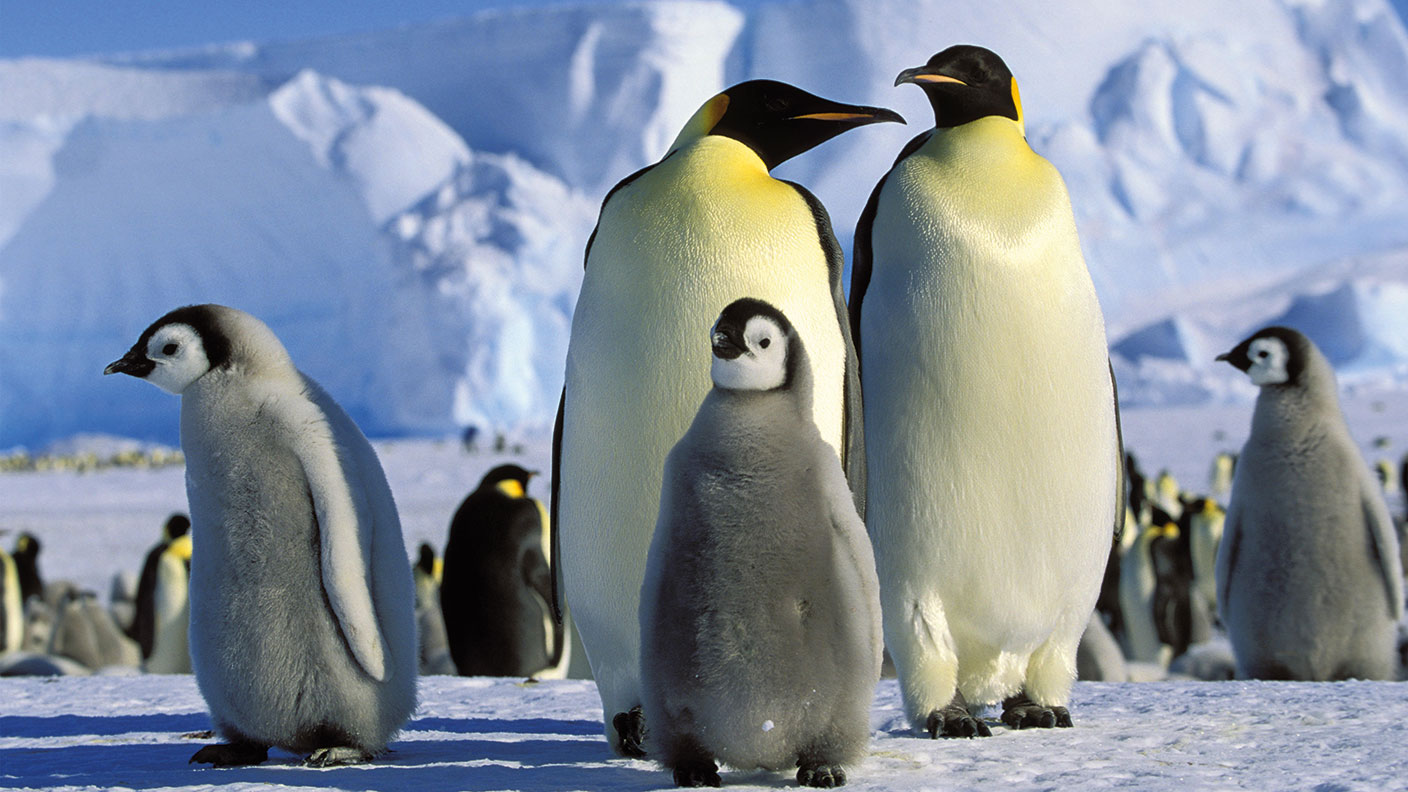Escape your home with a good book
Six authors that will allow you to travel without leaving your house.


Get the latest financial news, insights and expert analysis from our award-winning MoneyWeek team, to help you understand what really matters when it comes to your finances.
You are now subscribed
Your newsletter sign-up was successful
Want to add more newsletters?

Twice daily
MoneyWeek
Get the latest financial news, insights and expert analysis from our award-winning MoneyWeek team, to help you understand what really matters when it comes to your finances.

Four times a week
Look After My Bills
Sign up to our free money-saving newsletter, filled with the latest news and expert advice to help you find the best tips and deals for managing your bills. Start saving today!
In 1790, Xavier de Maistre, a French writer and soldier, was in lockdown for six weeks, under house arrest in Turin for duelling, says Marcel Theroux in The Daily Telegraph. He used the time to write a book called Voyage Autour de ma Chambre (Voyage Around my Room). In it, he does just that. Over 42 days, he visits his desk, his bed, his book collection, his paintings and other objects in his room, making “interesting observations” along the way. There is also a chapter on rereading letters from friends.
It hardly sounds scintillating, but “even on this miniature scale, the book mixes memoir, history and philosophy in a way that is entirely in keeping with the travel genre”. De Maitre’s “tiny book shows that there’s no limit to our imaginations” and highlights the “possibilities of enforced solitude”.
It also goes to show that a remote, exotic location is not essential for a good travel book. “Some of the worst travel books have been written about the most far flung places,” says William Cook in The Spectator. Rather, it hinges on the personality of the writer. A good travel book can be like “going on a journey with an old friend, without any of the discomfort or inconvenience”.
MoneyWeek
Subscribe to MoneyWeek today and get your first six magazine issues absolutely FREE

Sign up to Money Morning
Don't miss the latest investment and personal finances news, market analysis, plus money-saving tips with our free twice-daily newsletter
Don't miss the latest investment and personal finances news, market analysis, plus money-saving tips with our free twice-daily newsletter
Inspiration
“As I travel around my room, trying to catch sight of the far horizon beyond the bedroom window, two irrepressible travellers help me to celebrate a borderless world and the forces and urges that are greater than any single one of us,” says author Rory MacLean in The Guardian. Jay Griffiths’ “untameable” Wild: An Elemental Journey (2006) is “an exhilarating journey [around the world] that pleads for the preservation of wilderness”. The other is Nicolas Bouvier’s The Way of the World (1963). Bouvier is “the Jack Kerouac of Switzerland… [who] inspired a generation of young 1960s Europeans onto the road, taking me with them. He revelled in the way a journey… can change our lives”. As Bouvier said, “You think you are making a trip, but soon it is making you – or unmaking you”.
Felicity Aston’s Alone in Antarctica (2013) “is laden with emotion, vulnerability and humility”, says author Jini Reddy, also in The Guardian. “The way she describes the isolation, the cold and the landscape is vivid and immediate.” As the first woman to ski across the ice solo, “what she achieved is extraordinary”. “Her grit, her resilience, her honesty, her sheer ability to be alone with herself day after day after day inspired me no end.” Her book is a reminder that we can get through this lockdown, as well as a welcome dose of escapism.
Companionship
These days, “I’m looking to travel books not so much for inspiration as for companionship, in the manner of a raconteur/euse with whom I’d happily spend a few days (weeks, months) of total confinement”, says Anthony Peregrine in The Sunday Times. Companionship can provide “enchantment, insight and instruction”. Jonathan Raban supplies these “supremely” in Passage to Juneau: A Sea and Its Meanings (1999). Sailing his 35ft ketch through the Inside Passage from his Vancouver home to the Alaskan panhandle, Raban “weaves masterful descriptions of the sea and its various meanings for... Native Americans (for whom it was vital) and white explorers for whom it was the blank bit (before the more interesting land)”. There are moments of self-examination, such as when his father dies, as well as mythology, weird encounters and, “in short, more sustenance that you’d expect from... half a dozen normal authors”.
Humour
“American satirist P.J. O’Rourke has a rare talent for writing humorously about humourless topics,” says The Spectator’s William Cook. In Eat the Rich: A Treatise on Economics (first published in 1998), O’Rourke travels the world to assess the pros and cons of competing economic systems. Chapters include “Good Capitalism (Wall Street), Bad Capitalism (Albania), Good Socialism (Sweden), Bad Socialism (Cuba), How to Make Everything from Nothing (Hong Kong), How to Make Nothing from Everything (Tanzania) and How to Have the Worst of Both Worlds (Shanghai)”. This book taught me “more about economics... than any book about economics I’ve ever read”.
Get the latest financial news, insights and expert analysis from our award-winning MoneyWeek team, to help you understand what really matters when it comes to your finances.

-
 Should you buy an active ETF?
Should you buy an active ETF?ETFs are often mischaracterised as passive products, but they can be a convenient way to add active management to your portfolio
-
 Power up your pension before 5 April – easy ways to save before the tax year end
Power up your pension before 5 April – easy ways to save before the tax year endWith the end of the tax year looming, pension savers currently have a window to review and maximise what’s going into their retirement funds – we look at how